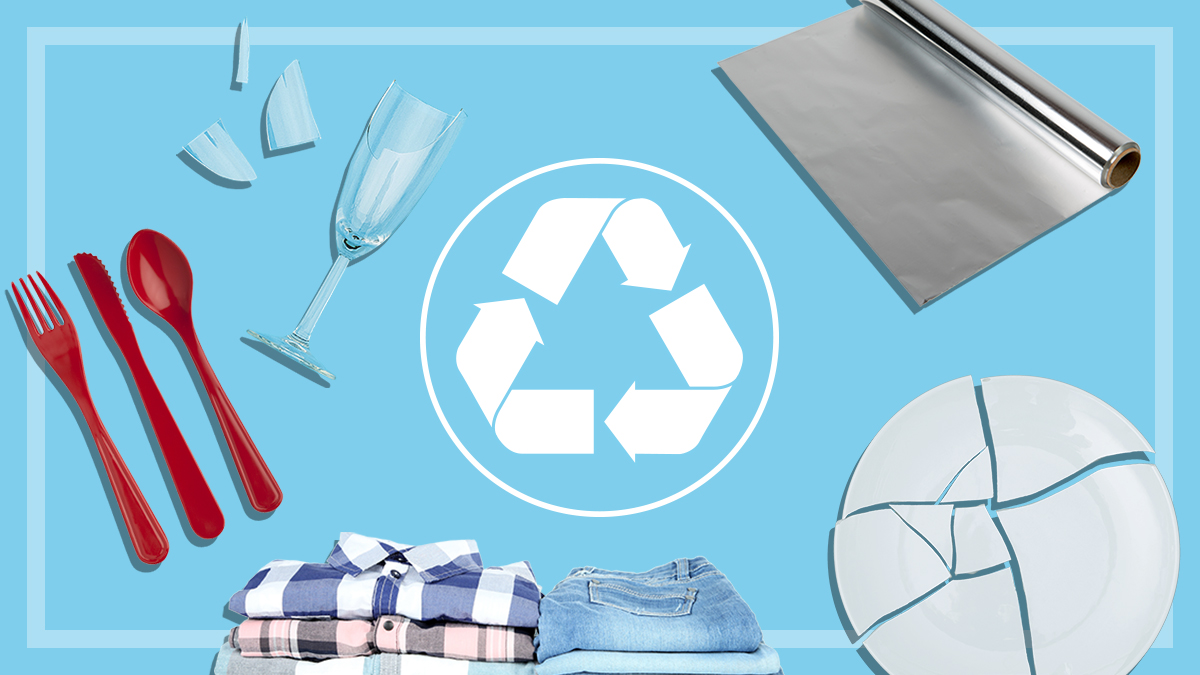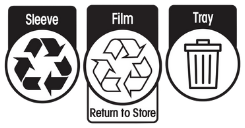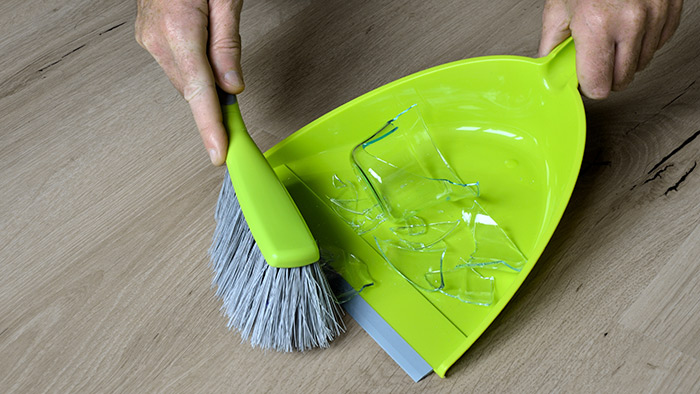Get our independent lab tests, expert reviews and honest advice.
10 common recycling mistakes to avoid

Australians have all the right intentions when it comes to recycling, but sometimes they don’t pay off. In fact, 86% of our packaging is designed to be reused, but only 55% of it ever makes it all the way to being recycled.
In an effort to do our bit, we’ve compiled a list of common household recycling mistakes so you can be part of the solution kerbside.
1. Not looking closely enough at the label
Many of us are used to throwing our packaging into the bin without a second thought, but it can pay to take a closer look at the product for a recycling label.
New types of labels, such as The Australasian Recycling Label, let you know whether different parts of a package, such as the lid, tray or wrapping, should go in the recycling or not.
2. Not cleaning off food and other debris
Too much food, liquid or grease can contaminate recyclables and prevent them from being turned into higher-quality materials down the track. Planet Ark recommends giving items a quick rinse if there are any leftovers.

3. Wrongly recycling soft plastics
Soft plastics, such as pasta bags and cling wrap, can get tangled in machinery and cause havoc if they’re lumped in with household recycling.
The REDcycle bins found at most major supermarkets can take care of many of these items – just check what’s accepted first. Otherwise, the best course of action is to put them in general waste.
4. Putting recyclables in a plastic bag
Gathering up all your household recycling in a plastic bag will cause the same issue as in point 3. According to Planet Ark, any recyclables left inside a plastic bag will probably end up in landfill.
5. Putting the wrong glass in the wrong bin
Broken glassware can cause major problems in the recycling process, as it doesn’t melt at the same temperature as bottles and jars. Best to wrap up any broken glass or crockery in a cloth or several layers of newspaper and put it in your rubbish bin, not the recycling.
6. Recycling plastic cutlery
Plastic dining ware is often too flat or too light to be picked up as plastic by recycling machines and can therefore end up in the paper section. Some councils can recycle plastic plates, but it’s best to check first.
The thin plastic lining on takeaway coffee cups will also upset paper recycling, so make sure they go in general waste or, even better, a dedicated recycling bin for takeaway cups.

7. Not getting creative with aluminium
You can recycle clean aluminium foil and trays in most parts of Australia, but check with your council if in doubt.
Make sure they end up in the right section at your local refuse facility by scrunching them into a ball or other solid shape – if you leave them flat, they could contaminate other recycling.
8. Recycling biodegradable or compostable plastics
Keep plastic products marketed as being biodegradable or compostable out of your recycling bin, as they can disrupt efforts to repurpose general plastics.
What’s more, these materials may not actually break down enough when put in household organic bins. So unless the label says the product is certified Home Compostable, it’s often best to put these items in general waste.
9. Throwing out reusable products
If your old or unwanted clothes are in good condition, donate them to op shops. If they’re not, use them as rags for cleaning and the like.
You can also make a difference by keeping reusable water bottles, coffee cups and food wrapping handy to save your wallet and the planet from more disposable items.
10. Not buying reused goods
The recycling industry is like any other – governed by supply and demand. So if you make an effort to seek out items made from recycled plastics or other materials, you’ll be supporting recyclers and making sure reusable materials are worth more out of the ground than in it.




